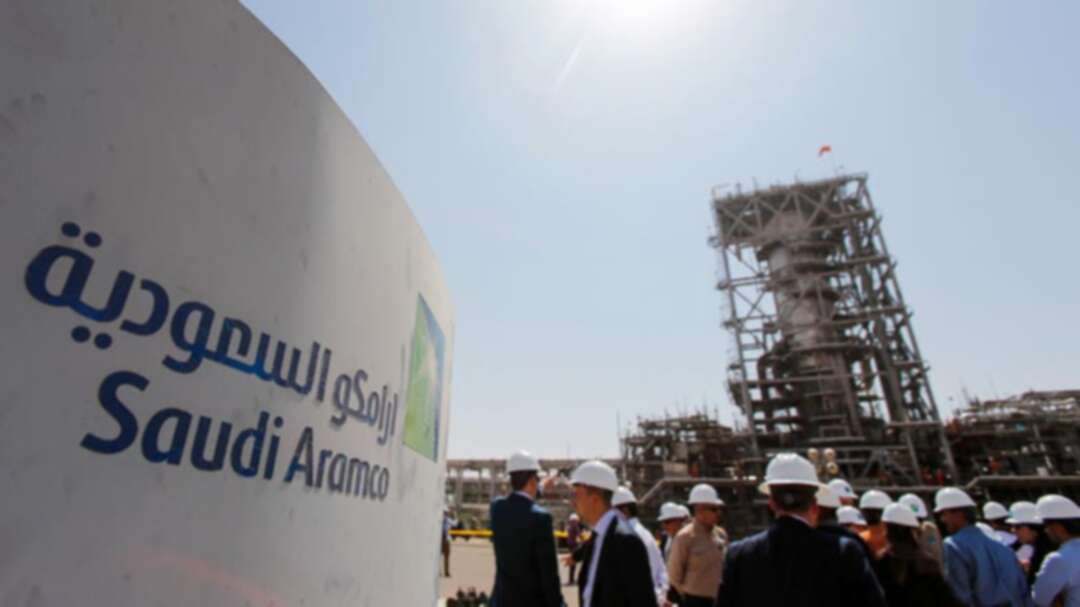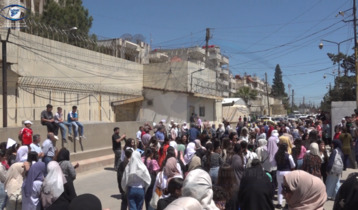-
UN investigators find Yemen’s Houthis did not carry out Saudi oil attack

The Iran-backed Houthi militia in Yemen did not launch an attack on Saudi Arabia’s oil facilities in September, according to a confidential report by UN sanctions monitors seen by Reuters on Wednesday, bolstering a US accusation that Iran was responsible.
The United States, European powers and Saudi Arabia blamed Iran for the September 14 attack on the Saudi Aramco oil plants in Abqaiq and Khurais, dismissing a quick claim of responsibility by the Iran-backed Houthis. Tehran denied any involvement.
The report by the independent UN experts to the Security Council Yemen sanctions committee said, “That despite their claims to the contrary, the Houthi forces did not launch the attacks on Abqaiq and Khurais on 14 September 2019.”
The findings of the UN report come amid escalating tensions in the region after the United States killed Iranian General Qassem Soleimani in Baghdad and Tehran retaliated by firing missiles at military facilities housing US troops in Iraq.
The UN investigators said they doubted that the drones and land attack cruise missiles used in the September 14 attack “have a sufficient range to have been launched from Yemeni territory under the control of the Houthis.”
“The panel notes that Abqaiq and Khurais were approached respectively from a north/northwestern and north/northeastern direction, rather than from the south, as one would expect in the case of a launch from Yemeni territory,” the report said.
The investigators, who monitor sanctions on Yemen, also said they do not believe that “those comparatively sophisticated weapons were developed and manufactured in Yemen.” They were not tasked with identifying who was responsible for the Saudi attack.
Military support of the Houthis
The attacks that targeted the Abqaiq and the Khurais oil plants caused a spike in oil prices, fires and damage, and shut down more than five percent of global oil supply. Saudi Arabia said on October 3 that it had fully restored oil output.
Saudi Arabia's Minister of State for Foreign Affairs Adel al-Jubeir signaled in September that Riyadh was waiting for results of UN investigations before announcing how his country would respond.
“The United Nations sent people to be part of the investigation, other countries have sent experts to be part of the investigation,” he told reporters in New York. “When the team that’s investigating has concluded its investigations we will make the announcements publicly.”
Reuters reported in November that Iran’s Supreme Leader Ayatollah Ali Khamenei had approved the attack on the Saudi oil facilities, but with strict conditions: Iranian forces had to avoid hitting any civilians or Americans. Iran rejected the version of events that four people described to Reuters.
UN experts monitoring UN sanctions on Iran and Yemen traveled to Saudi Arabia days after the September attack.
UN Secretary-General Antonio Guterres told the Security Council in a separate report on December 10 - on the implementation of an arms embargo and other restrictions on Iran - that the United Nations was “unable to independently corroborate” that missiles and drones used in the attacks “are of Iranian origin.”
The report seen by Reuters on Wednesday is from the independent panel of experts that reports twice a year to the Security Council on the implementation of sanctions related to the conflict in Yemen that were imposed in 2014 and 2015.
It was submitted to the UN Security Council Yemen sanctions committee on December 27, but will not be made public until later this month or next month.
The Arab Coalition intervened in the war in Yemen in 2015, backing government forces fighting the Iran-allied Houthis. The Houthis have been subject to a separate arms embargo since 2015.
Iran has repeatedly denied supplying weapons to the Houthis.
“The Houthi forces continue to receive military support in the form of assault rifles, rocket propelled grenade launchers, anti-tank guided missiles, as well as more sophisticated cruise missile systems,” the report found.
“Some of those weapons have technical characteristics similar to arms manufactured in Iran,” it said.
source:Reuters
You May Also Like
Popular Posts
Caricature
BENEFIT Sponsors BuildHer...
- April 23, 2025
BENEFIT, the Kingdom’s innovator and leading company in Fintech and electronic financial transactions service, has sponsored the BuildHer CityHack 2025 Hackathon, a two-day event spearheaded by the College of Engineering and Technology at the Royal University for Women (RUW).
Aimed at secondary school students, the event brought together a distinguished group of academic professionals and technology experts to mentor and inspire young participants.
More than 100 high school students from across the Kingdom of Bahrain took part in the hackathon, which featured an intensive programme of training workshops and hands-on sessions. These activities were tailored to enhance participants’ critical thinking, collaborative problem-solving, and team-building capabilities, while also encouraging the development of practical and sustainable solutions to contemporary challenges using modern technological tools.
BENEFIT’s Chief Executive Mr. Abdulwahed AlJanahi, commented: “Our support for this educational hackathon reflects our long-term strategic vision to nurture the talents of emerging national youth and empower the next generation of accomplished female leaders in technology. By fostering creativity and innovation, we aim to contribute meaningfully to Bahrain’s comprehensive development goals and align with the aspirations outlined in the Kingdom’s Vision 2030—an ambition in which BENEFIT plays a central role.”
Professor Riyadh Yousif Hamzah, President of the Royal University for Women, commented: “This initiative reflects our commitment to advancing women in STEM fields. We're cultivating a generation of creative, solution-driven female leaders who will drive national development. Our partnership with BENEFIT exemplifies the powerful synergy between academia and private sector in supporting educational innovation.”
Hanan Abdulla Hasan, Senior Manager, PR & Communication at BENEFIT, said: “We are honoured to collaborate with RUW in supporting this remarkable technology-focused event. It highlights our commitment to social responsibility, and our ongoing efforts to enhance the digital and innovation capabilities of young Bahraini women and foster their ability to harness technological tools in the service of a smarter, more sustainable future.”
For his part, Dr. Humam ElAgha, Acting Dean of the College of Engineering and Technology at the University, said: “BuildHer CityHack 2025 embodies our hands-on approach to education. By tackling real-world problems through creative thinking and sustainable solutions, we're preparing women to thrive in the knowledge economy – a cornerstone of the University's vision.”
opinion
Report
ads
Newsletter
Subscribe to our mailing list to get the new updates!






















